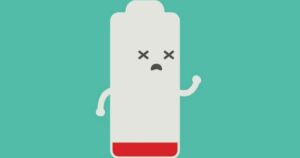Contents
- 1 Nervous Breakdown At Work
- 2 Symptoms Of A Nervous Breakdown
- 3 Causes Of Workplace Nervous Breakdown
- 4 How Long Does A Nervous Breakdown Last?
- 5 Preventions Of Nervous Breakdown At Work
- 6 Treatment Options For A Nervous Breakdown
- 7 How To Support Your Employees Who Have A Nervous Breakdown?
- 8 Nervous Breakdown Recovery – The Return To Work
- 9 Who Is Most Likely To Have Mental Health Issues At The Workplace?
- 10 A Word From Mantra care
Nervous Breakdown At Work
 A nervous breakdown at work can result from a number of causes, but the overall goal is to have the worker return to productive activity as soon as possible. Helping workers with their mental health issues and seeking alternative employment if needed are critical steps in getting them back on track. This article focuses on how to prevent and deal with these issues.
A nervous breakdown at work can result from a number of causes, but the overall goal is to have the worker return to productive activity as soon as possible. Helping workers with their mental health issues and seeking alternative employment if needed are critical steps in getting them back on track. This article focuses on how to prevent and deal with these issues.
Nervous breakdowns can be mental or physical in nature. Physical nervous breakdowns are the result of either injury or exposure to chemicals and other dangerous substances at work. Mental nervous breakdowns occur when someone experiences emotional and psychological collapse due to stressors such as bullying, harassment, lack of sleep, or excessive demands on their time. Research shows that most people with these issues will recover through treatment if they are willing to put in the hard work necessary for recovery.
A nervous breakdown at work is the result of many factors, such as personal issues combined with workplace stressors that lead to emotional and psychological collapse, which may also include physical effects such as lack of sleep.
Symptoms Of A Nervous Breakdown
There are several indicators that an employee is being affected by mental health problems. You’ll be in a stronger position to give assistance and recommend competent professional help if you can recognize these signals.
Symptoms of a nervous breakdown vary greatly from one person to the next, depending on the cause of the breakdown. They might be physical, mental, or behavioral in nature. However, here are some indicators to look for:
The most common symptoms of a nervous breakdown are:

- Nervousness and anxiety
- Fearfulness, dread, horror
- Nightmare states, recurrent images
- Memory loss, inability to concentrate
- Hyperactivity, agitation
- Paranoia, delusions, hallucinations
Causes Of Workplace Nervous Breakdown
You should be aware of the fact that having personal difficulties at work is one of the most common reasons why people experience nervous breakdowns. The number one reason for mental health problems in the workplace is a family crisis, followed by relationship difficulties and pressure to meet job requirements.
Stress
 Mental illness is caused by an issue in the brain that affects how it works and the chemicals produced by the brain. Stress can be one of several causes of mental health illnesses, but if untreated, stress can also lead to a nervous breakdown. Symptoms may include irritability, mood swings (particularly related to depression or anxiety), and insomnia.
Mental illness is caused by an issue in the brain that affects how it works and the chemicals produced by the brain. Stress can be one of several causes of mental health illnesses, but if untreated, stress can also lead to a nervous breakdown. Symptoms may include irritability, mood swings (particularly related to depression or anxiety), and insomnia.
Stress can be caused by many issues at work, such as bullying or harassment from supervisors, co-workers, customers, or other factors in the person’s personal life. Sometimes, workplace stress can lead to a nervous breakdown when it becomes overwhelming for the worker on an emotional level combined with increased demands on their time that leads to a physical breakdown from lack of sleep.
Inadequate Workplace Training
Inadequate workplace training can lead to injury, as well as worker vulnerability to dangerous chemicals or equipment. In the case of physical injuries, this could also be a mental health issue as it can cause depression due to financial strain and loss of productivity.
Bullying
Bullying is not only a form of mental and psychological abuse. It is also a violation of the law in many countries (notably in Europe). Workplace bullying can result in stress that leads to a nervous breakdown. A person may feel like they are singled out for harassment or humiliation on a daily basis. Bullying at work happens when someone threatens, intimidates, offends, or abuses a worker repeatedly and can cause mental stress.
Lack Of Sleep
 A person’s work ethic may be a good indication of a good worker. Lack of sleep can result in a lack of productivity and if someone is experiencing a nervous breakdown. It is because they have been overworking for an extended period of time or have been working two jobs that tax both their physical and mental capacity. This would be a good time to provide assistance by recommending that the person seek medical treatment for their condition. So that they can resume employment as soon as possible.
A person’s work ethic may be a good indication of a good worker. Lack of sleep can result in a lack of productivity and if someone is experiencing a nervous breakdown. It is because they have been overworking for an extended period of time or have been working two jobs that tax both their physical and mental capacity. This would be a good time to provide assistance by recommending that the person seek medical treatment for their condition. So that they can resume employment as soon as possible.
Lack of sleep can cause stress and lack of productivity, which may eventually lead to a nervous breakdown at work.
Discrimination
Although many avenues exist for correcting wrongdoing in the workplace, fear of reprisal or discrimination may prevent a person from standing up for their rights. The employer should deal with any wrongdoers fairly and responsibly through existing channels, but if issues are not resolved this can lead to depression and stress which can cause a nervous breakdown at work.
How Long Does A Nervous Breakdown Last?
Some people experience a nervous breakdown and recover quickly, while others may suffer for months or even years before they can resume normal functioning.
The length of time for a person to recover from a nervous breakdown is different for everyone and depends largely on the severity of the event that caused it. Some people will have an episode that lasts only one day and then go back to work as usual. Others may need more than two weeks to recuperate. It’s important to get professional help if you’re not sure how long your recovery will take.
Preventions Of Nervous Breakdown At Work

Prevention of this breaks down into three steps: ensuring you have a suitable work environment, recognizing the warning signs of an impending breakdown, and knowing how to find help.
The ideal workplace is one where employees are not subject to bullying by supervisors or co-workers, where training is sufficient for the job duties assigned to an employee, and where adequate breaks are provided throughout the day. If possible, try to identify early warning signs of a nervous breakdown. Such as increased irritability or mood swings.
If you are unable to prevent your own nervous breakdown at work, seek professional help immediately. If an injury has occurred due to workplace stress, you should also have it evaluated by medical professionals to determine the extent of your injuries. Most companies will have an employee assistance program (EAP) that should be able to help. This is an outside service company available to employees and their families, such as family physicians or mental health professionals.
The term “nervous breakdown” is often used as a catch-all phrase to describe anything from depression and anxiety to physical illness.
Treatment Options For A Nervous Breakdown
There are many treatment options for a nervous breakdown at the workplace. Working out and eating healthy will help; but in some cases, medication may be needed. If you have a chronic illness, such as anxiety or depression, therapy and medications can provide relief. It’s important to see a psychiatrist if your condition persists and let them know what has been going on at work and in your life.
If your symptoms of depression get worse after starting an antidepressant. Talk with your doctor about switching antidepressants or adding another medication to your treatment plan.”
Most people who have a nervous breakdown do not get the help they need. Nervous breakdowns are often self-diagnosed and can lead to serious medical conditions if left untreated. Most cases of depression turn into clinical depression, which increases the risk for suicide. Luckily, this condition is treatable both medically and therapeutically.
If you’re feeling overwhelmed at work, it’s time to take a break. The brain needs downtime in order to recover from the stress of daily life. It is important that your brain gets enough rest time so that it can continue to function at its best. Studies have shown that people who take regular time off work experience less stress and are more productive.
How To Support Your Employees Who Have A Nervous Breakdown?

The first step should be to help them calm down and breathe deeply. Try to determine if they’re in pain or their anxiety is causing them to feel uncomfortable at work. If you can’t tell, take them to the doctor. The last thing anyone needs is their co-workers thinking they are faking it. If you can, let them know they’re not alone and help them to focus on what’s going well instead of their struggles.
This is the first step, but if they continue to feel unwell after a period of rest and relaxation, you should consult with an expert. The next issue may be dealing with the longer-term effects of having had a nervous breakdown at work.
There are a number of things you can do to help your employees.
- Create a culture in which staff feels comfortable discussing their mental health.
- Offering cognitive-behavioral therapy (CBT) is one way to assist them.
- Consider altering working hours and responsibilities.
- Providing mentorship or supervision possibilities is another method to support your team.
The health institutes reports that one in five Americans experiences mental illness during the course of a year, but only about one-third receives treatment. Symptoms associated with mental illness include sleeplessness, agitation, and irritability. These symptoms can sap your energy, making it difficult to stay focused at work.
Nervous Breakdown Recovery – The Return To Work

It’s not unusual for a staff member to need time off work to recuperate when they’re ill (both mentally and emotionally). It’s critical to have an initial talk with them upon their return to work following this period of absence in order to create a strategy.
A return-to-work interview is also required to build trust and involvement with the employee, as well as to guarantee that the employee’s return to work is supported by suitable and agreed actions. The plans may include anything from medication adjustments to job modifications and training:
- Reasonable adjustments for the workplace are required.
- On-the-job assistance from managers or human resources is necessary.
- If necessary, implement a buddy system.
- Engage them in office activities to help them integrate back into work.
- Acknowledge their efforts and contributions.
Nervous breakdowns are a major problem in Singapore, with one person being diagnosed as having a nervous breakdown every 8 hours. Medical professionals have deemed that at least 50% of those who suffer from a nervous breakdown will be diagnosed with clinical depression.
Nervous breakdowns can occur to anybody, regardless of age and gender. According to the studies, 25% of those who suffered from a nervous breakdown were under the age of 30. While 15% were teenagers under the age of 18. As for females, 25% of cases were in the age group of 31 to 40, with 17.4% in the 18-30 bracket.
The most common causes are depression, stress, anxiety, and work pressure.
Who Is Most Likely To Have Mental Health Issues At The Workplace?

The first step to identifying an employee with depression is to get the information from the employee himself or herself. This may be accomplished by simply asking “Do you feel like you’re struggling with depression?” and “Do you feel like you’re struggling with anxiety?” It is important not to give this individual a diagnosis of anxiety and/or depression and then stop.
It is also important to check in on the individual if he or she has been struggling. This may include asking them how they are feeling on a daily basis. Whether they have been sleeping well, and what time they come into work. Employees might be so used to acting normal that they don’t tell their boss when their depression gets worse or if their symptoms worsen.
Another key point is to ask this individual if he or she has ever been diagnosed as having depression or any other mental illness. If so, that information will be helpful to help the individual access treatment and then return to work.
A few other steps can be taken if an employee admits to their boss they have a mental illness:
- Have the individual talk to their doctor about his or her options, which might include medication changes.
- Ensure that the individual is receiving treatment and can return to work.
- Promote wellness at the workplace by ensuring that the individual has a healthy diet, exercise regimen, and stress-free environment.
Employers should be aware of the warning signs of a nervous breakdown. These warning signs may include loss of appetite, trouble sleeping or concentrating, and withdrawal from friends or coworkers. If you find yourself constantly fatigued or under stress, you should take action before you begin experiencing these symptoms.
A Word From Mantra care
Do you want to keep your employees happy, healthy, and productive? Join our employee assistance program and get a healthier workplace.


